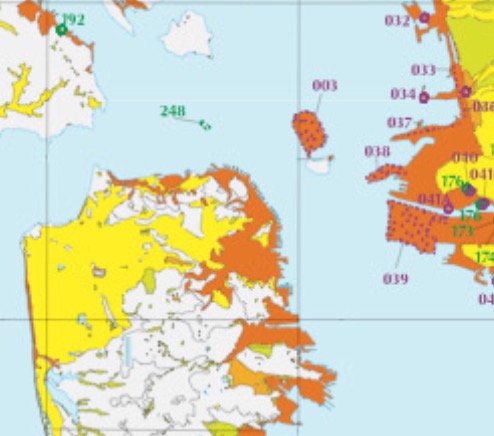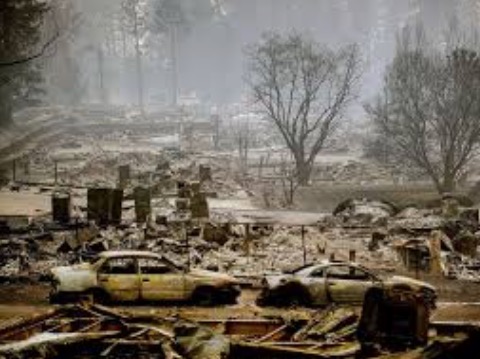Soil matters more
Past earthquake data is fairly useless because it doesn't go back far enough. Apparently the First Nations and Mexicans didn't keep the data.
The ruling factor for earthquake damage is the soil the house is built on. Your town or county should have a lot of data about soils and how that affects buildings. You need to pay very close attention to that risk data.

Houses above bedrock do very well, houses in liquefaction zones get randomly smashed.
Don't forget wildfire
Everybody forgets wildfire. Now that we're pretty sharp on building for earthquakes, the much bigger threat in California is actually brush fires. This is a constant in all but the wettest parts of the coast and Sierra.

How to mitigate
First and most important, don't buy in orange zones on the liquefaction map. So have a talk with your city or county about that data, supposedly USGS has a bunch of data but what they share on their website seems to focus on the Bay Area.
Now, they talk a lot about defensible space. That's fair, I don't disagree. But it's not a cure-all. Look at neighborhoods that burn, you don't see a whole lot of single houses saved by the owner's taking defensible space seriously. So on the toughest fires, it either needs eveyone to do it, like vaccinations, or some fires are just too big for even it. All that to say, I think neighborhood matters too. If the neighborhood is too pregnant with fuel, it's at risk.
Mind you, right now as you're house shopping, you're in the rainy season, so everything looks lush and verdant. Lawns get watered because there's not a drought right now. "That greenery couldn't all burn!" It's exactly what will burn. Eucalyptus trees are downright explosive, they are so laden with oil. Rains are strong this year so things will be watered in 2019, but in another year, it will be brown and sun-bleached. Talk again to your city about wildfire risk.
Lastly, as far as earthquakes, there are many retrofits that can be done to keep a house on its foundation and in one piece during a quake. Some are mandatory and those need to be done to Code, but others are optional and can be easily added during other work, particularly if the drywall is off.


